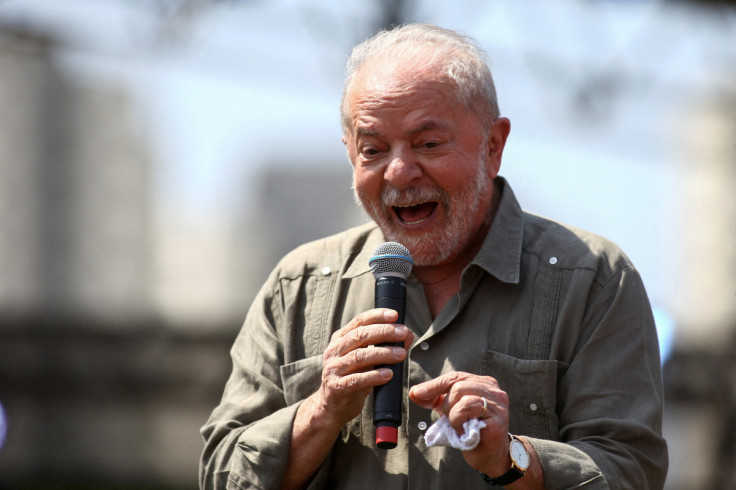Lula Campaign Mulls New Mining Royalties In Brazil, Spooking Industry

Brazilian presidential frontrunner Luiz Inacio Lula da Silva is considering raising royalties on certain mining projects if elected, a campaign adviser told Reuters, likely affecting iron ore giant Vale SA and other multinationals.
Under the proposal drafted by mining specialists working for Lula's Workers' Party (PT), the government would charge an increased royalty rate - known as a "special stake" - on minerals of particularly high value, whether due to geological characteristics or market demand, according to a party geologist and documents seen by Reuters.
The idea, which has not yet been officially adopted by the Lula campaign, was described to Reuters by Claudio Scliar, a geologist and member of the PT committee in charge of mineral and energy-related matters.
It was unclear how Lula would make a decision on the proposal and whether he would accept it.
Brazil's Congress discussed such a royalty plan during the 2011 to 2016 government of leftist President Dilma Rousseff, but it received strong pushback from industry and was shelved.
The proposal underlines one of the main ideological faultlines of Brazil's presidential campaign.
Lula, a former union leader who governed Brazil from 2003 until 2011, has frequently said the state should play a more robust role in the economy. Many of his proposals, such as new taxes on dividend and interest payments, have been received coldly by the market.
Right-wing incumbent Jair Bolsonaro has leaned heavily on Economy Minister Paulo Guedes, viewed as pro-market, even as a recent welfare splurge has dented his credentials.
Lula holds a double-digit lead in most polls, but that gap has narrowed as both candidates gear up for the first round vote on Oct. 2.
The special royalty could hurt mining investment in Brazil while boosting rivals including Canada and Australia, several specialists and market participants said.
"Creating a special mining royalty is going to scare away investors and make our competitors happy, especially the Australians," said Rinaldo Mancin, head of institutional relations at the Brazilian Mining Institute (Ibram).
Brazil is a material exporter of several minerals, including copper, gold and nickel, but iron ore is its largest export by far.
Among the projects that could be affected should Lula win and impose the special royalty rate are a series of Vale-operated iron ore complexes in the Carajas region of northern Brazil.
The ore produced there is exceptionally pure and generally fetches a premium on the international market.
The Rio de Janeiro-based firm declined to comment.
Scliar, the PT-affiliated geologist, pointed out that Brazil has maintained a differentiated royalty regime on oil since 1997, with higher rates charged in some highly prolific production areas. The South American nation is now the world's ninth-largest oil producer and its offshore acreage is some of the most sought after in the industry.
"There are some mineral deposits with exceptional characteristics and that the international market wants a lot," said Scliar. "As the minerals belong to the state, the state should benefit."
© Copyright Thomson Reuters 2024. All rights reserved.











